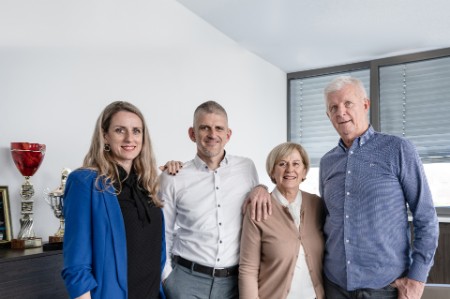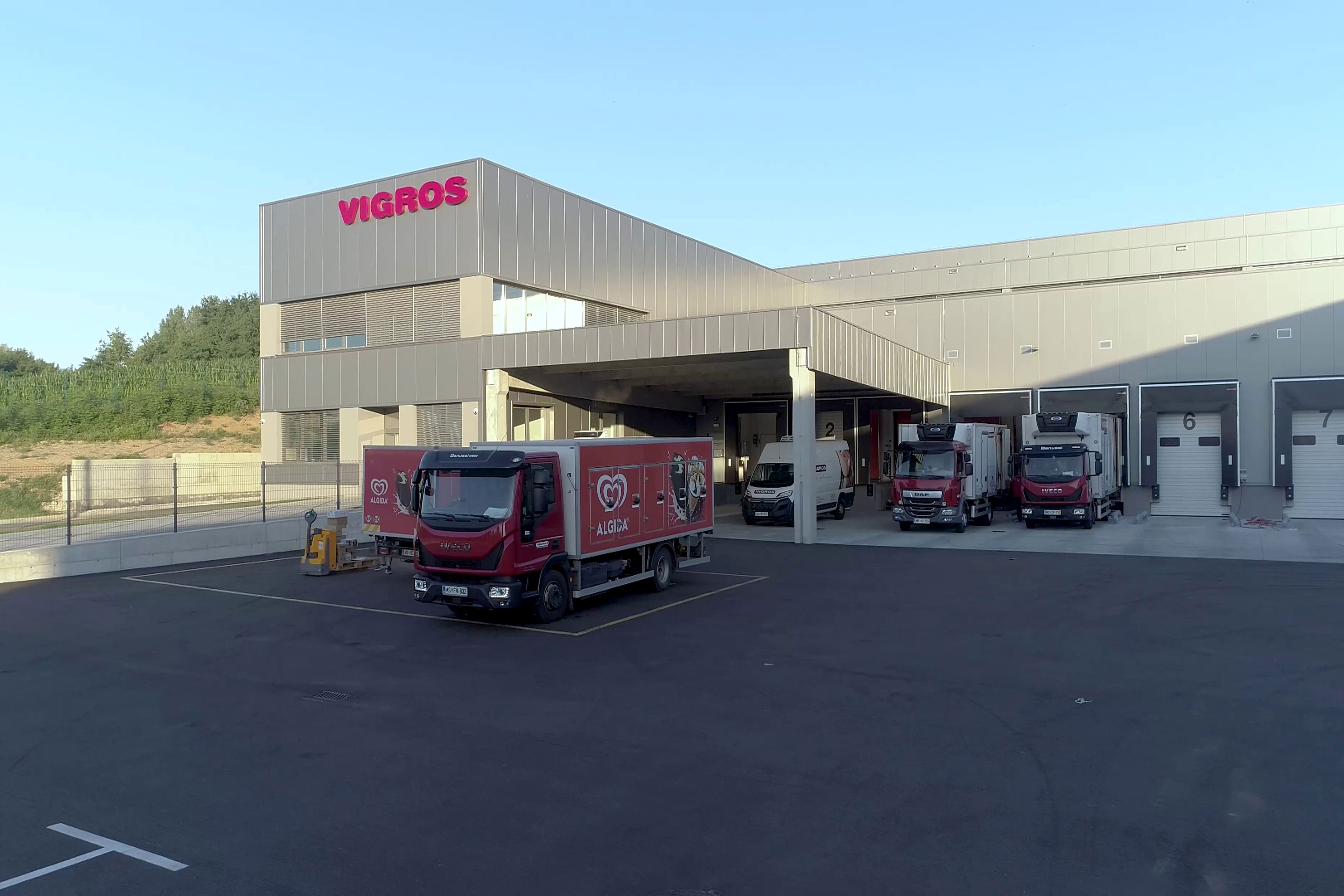
It’s never too late to become entrepreneur
Viljem Šiftar was 40 years old and, as he says, “no longer felt young”, when he started making new plans for the future. At the time, he was a Commercial Coordinator at ABC Pomurka, regional food-processing giant. Many manufacturers that used to be part of ABC Pomurka had started making their own way and Viljem felt that the company did not have a future. In 1991, he and his business partners founded their own company, Vigros. They started by importing Austrian juices, beers, and chocolates. In that period, the products basically sold themselves. “We could sell everything that we could import,” recalls Viljem.
The company was doing well, but Slovenia’s entry into the EU brought some uncertainty. “Many people were afraid that after we entered the EU, multinationals would open their own subsidiaries in Slovenia. At that moment, the future seemed more uncertain,” explains Viljem. Due to a difference of opinions between the owners about the future of Vigros, the ownership was consolidated in 2003 and Viljem Šiftar became the sole owner of the company. From that moment on, the company’s revenue continued increasing by 10 to 15%, thanks to excellent, carefully built relationships with the suppliers, and loyal coworkers.
The next generation
“The year 2003, when my father became the sole owner, was a crucial point in the development of the company, which allowed it to become what it is today. At the time, the company was very undercapitalized and needed a lot in investments. We knew that storages and cold rooms are the most important investment, so they became our priority. Ever since, the company is operating just like we wanted it to,” says Matej Šiftar, Viljem’s son, who took over the reins of the company in 2011.
Even though he had always dreamed of taking over the company, he was still surprised when he became the Director. “Father generally never talked much about his plans for the company, so I was surprised when he told me that he is retiring and that I should take over as the Director. I was 34 year old, and even though I had already been working at Vigros for quite some time, I was surprised by the scope of the directorial function. Father supported me, but also expected independence. I may have made some mistakes at the time, but the most important thing is that I learned from them,” recalls Matej.
Matej was always interested in working at the family company and he tailored his educational path to serve this goal. He went to business high school and continued studying business in Austria. As he didn’t speak German very well at the beginning, he sometimes found it difficult, but with persistence and hard work he completed his degree and went on to an internship in Ireland. Viljem proudly tells that many meetings with new suppliers went more smoothly thanks to Matej’s language skills and experiences from abroad.
On the other hand, Matej’s sister Maja always knew that she wanted to study law. She persisted and successfully finished her law degree and today consults for the family company in legal and HR matters.
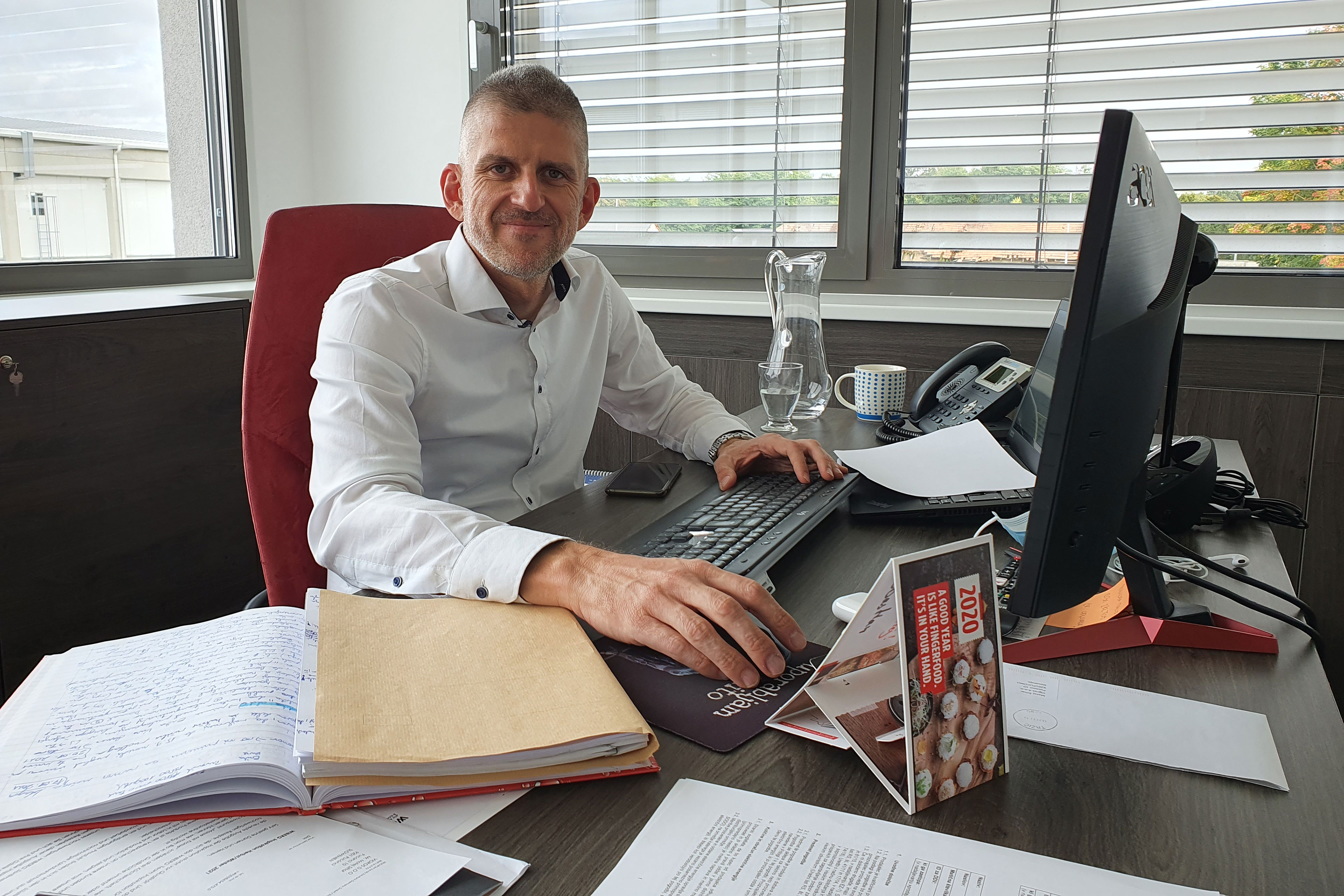
Family constitution is an opportunity to strengthen family relationship and transfer ownership
The Šiftar family is one of the few entrepreneurial families in Slovenia who decided to write a family constitution to clarify the relationship between the family and the company. The practice of preparing family constitutions, which guide the entire process of ownership and leadership transfer to the next generations, has only started gaining ground in Slovenia. The Šiftar family is preparing to sign the constitution and transfer the ownership in 2022. Viljem Šiftar describes his feelings about the process this way:
“I always knew that I would sometime have to transfer the ownership of the company, but I had no real vision how to go about it. Then I realized that it might be good to include external help. I’m very happy with everything we did in the process of preparing the family constitution, which will allow us to transfer the company to the next generation without any unnecessary stress.”
Managing people is more difficult than getting new clients
In 2011, when Matej officially took over from his father, Vigros had 45 employees; today, there are more than 100. How did they feel about the new Director? “It was not always easy, many employees were older than me. They has to accept that I’m different than my father and have a different style of leadership. I prefer to give people freedom, as long as everything gets done as agreed,” says Matej, who was mostly in charge of supply before taking over the directorial role.
The relationships in the company are very open and they are always prepared to meet the employees half-way, if they need any help. They encourage the employees to set challenges for themselves, to grow and to follow their ambitions. Even though the number of employees steadily grows, Matej knows everyone personally and stays in contact with them: “Working with people is a very complex issue. Every employee has a different character, a different way of thinking, and I am responsible for making sure they all work together and make ideas into reality. Since my very first day, I have been making recruitment and people management a priority, but I still feel I have a lot to learn.”
Vigros does not try to convince their clients with lower prices, but with high-quality services, reliability, responsiveness, adjustable prices and reliable delivery, which is key to long-term success.
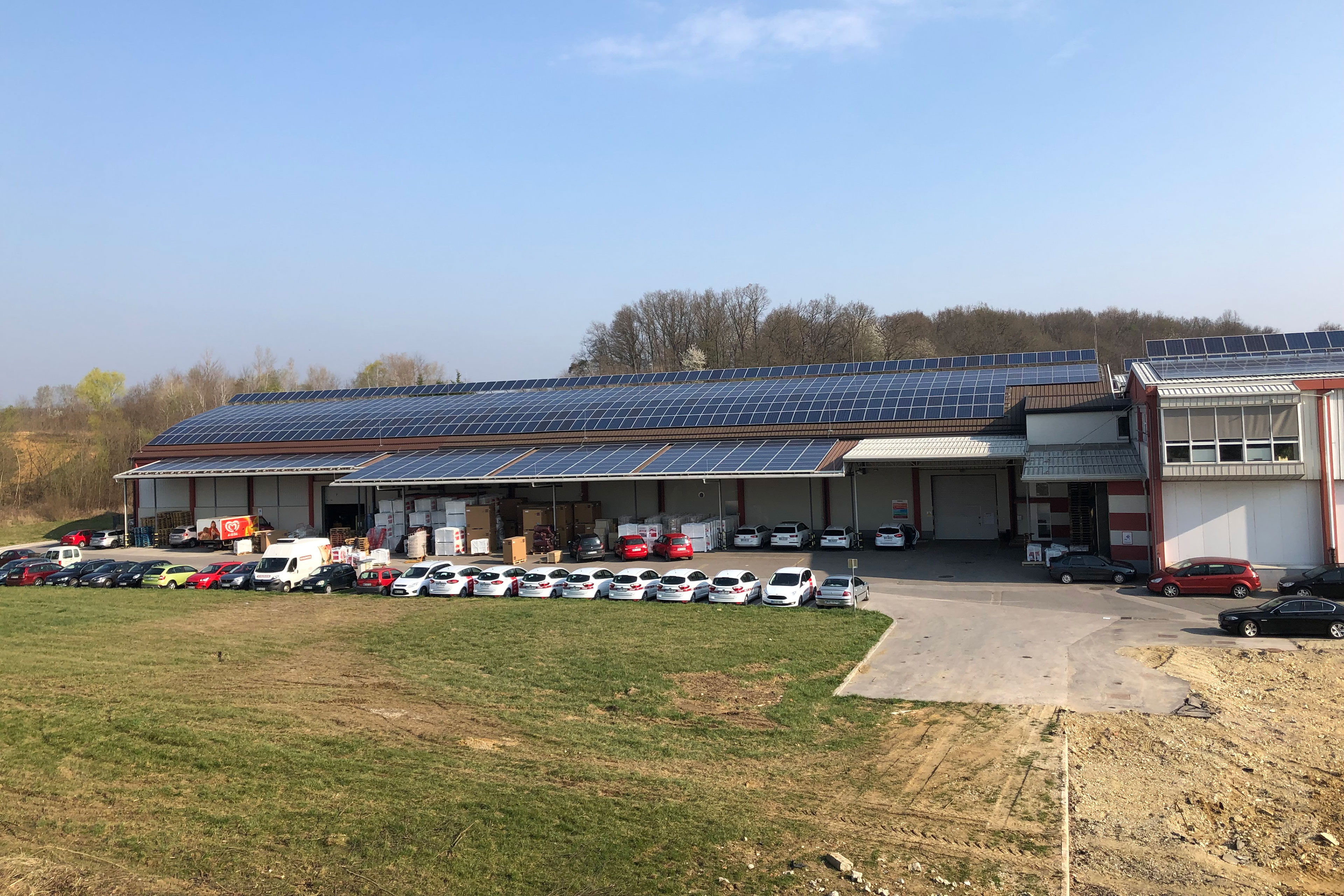
Sustainability is an important value
In 2009, when this was not at all the norm, Viljem put the first solar power plant on the roof of Vigros. Today, their solar plants generate a significant part of the electric energy needed for their cooling and freezing systems, which make up the majority of the company’s costs. When investing into their new storage facilities, they kept sustainability in mind; storage facilities are designed so that the heat produced during cooling is used to heat the offices and other areas. The new facilities are also topped with a solar power plant, which, combined with the existing solar plants, will allow them to produce up to 60% of the energy they need.
“My father, myself, and all other colleagues try to protect our planet with our actions. While every individual has only a tiny impact, together we can make sure the situation remains bearable in the long run,” Matej sums up the philosophy of the family company.
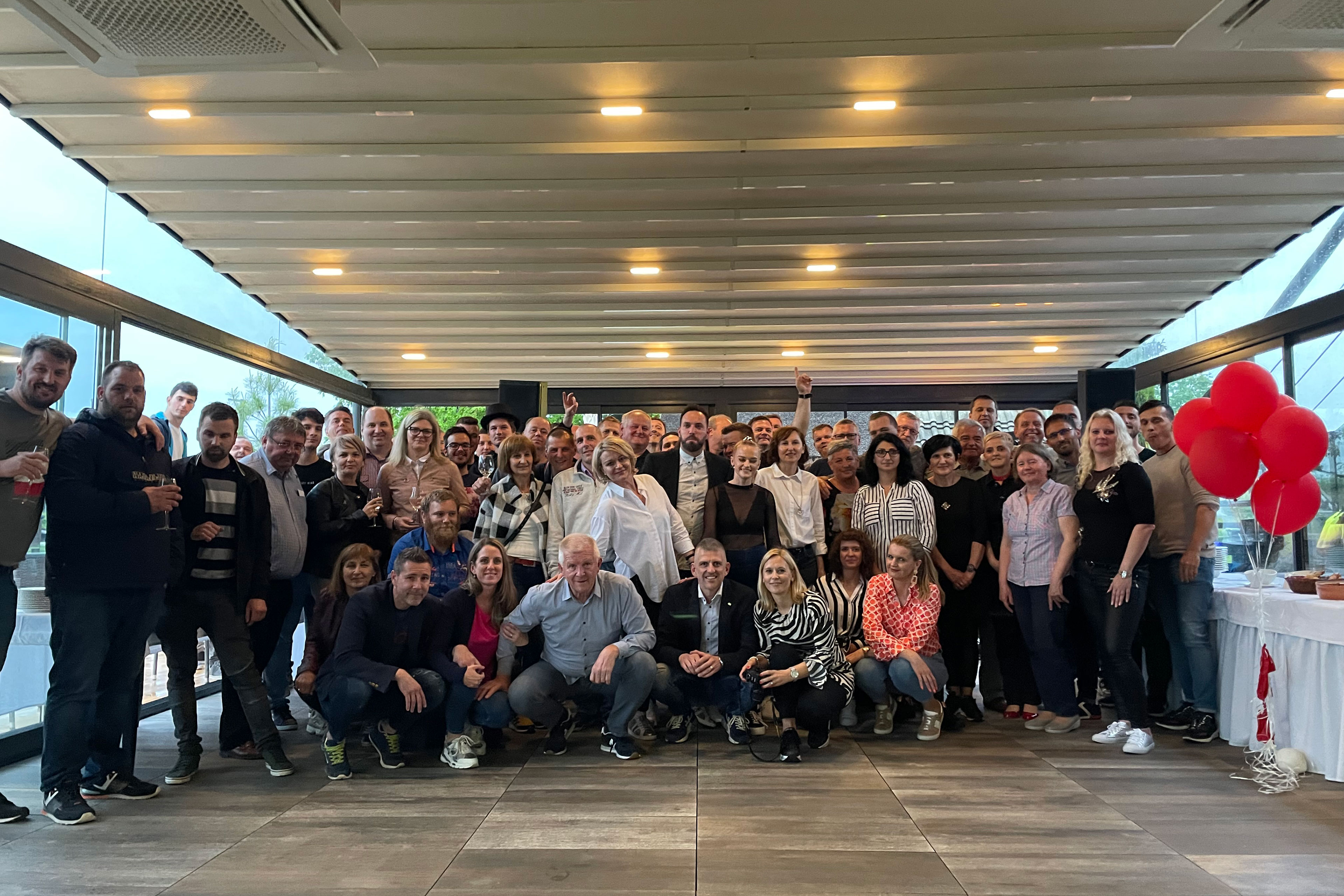
Convincing clients with quality
Vigros has many ambitions. The main challenge in the future is to increase their market share and become a more important supplier to restaurants and hoteliers. “We have always been selling ice-cream to restaurants, but this is only viable a couple of moths per year. This is why we expanded our range of products to include both frozen and canned food. Restaurants do not want to have many suppliers, they prefer one supplier who can get them different food items,” says Matej. To enter this market, they had to expand their storage capacity and find logistic solutions to deliver the products to 3500 locations using vehicles that can cover all necessary temperature ranges.
Their long-term strategy is based on the quality of their services and modern information technology. “Buyers are very sensitive to prices and quality, but we don’t want to be the cheapest option; we want to be the best option. The advantages we offer to our clients are quality, reliability, responsiveness, adjustable prices and reliable delivery. Food safety is the first priority of the entire logistic chain,” explains Matej.
Summary
Vigros in a nutshell: courage, learning, sustainability, reliability, growth, and development.
